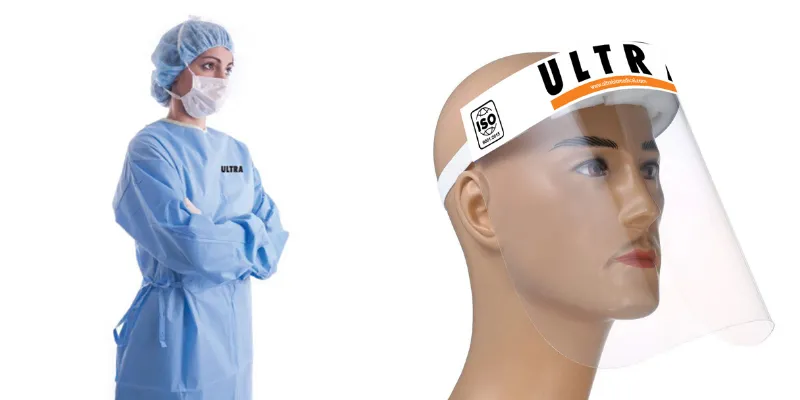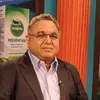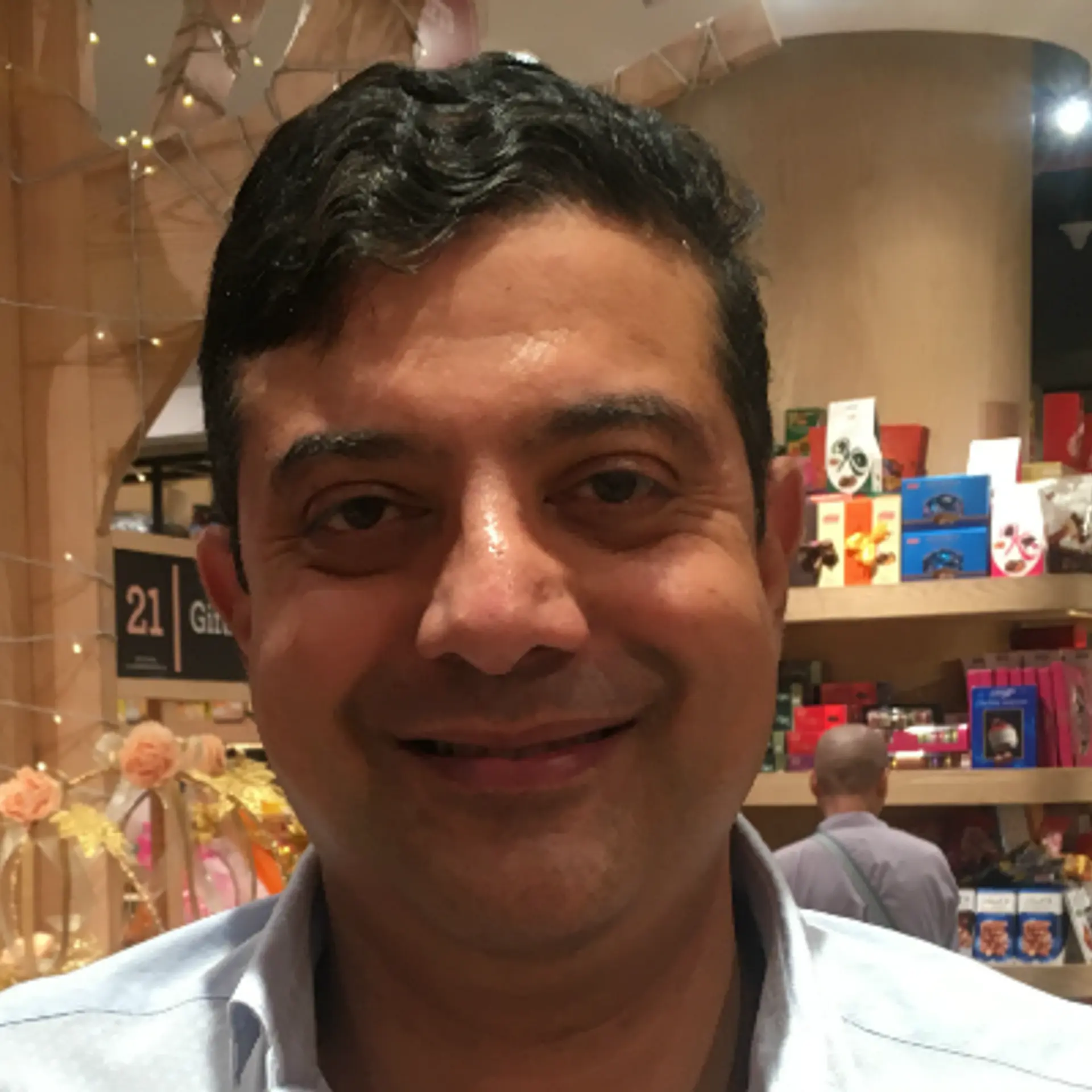Pivot and Persist: how this small garment manufacturing company pivoted to produce PPE kits, now sells globally
Noida-based Hula Global pivoted its business operations from garment manufacturing to produce PPE kits during COVID-19. It has now joined hands with Bahrain Government, Kingdom of Saudi Arabia (KSA), Brazil, and Italy to supply these kits.
The nationwide lockdown announced by Prime Minister Narendra Modi in March to fight the coronavirus pandemic came out like a bolt from the blue for businesses. With salaries and overhead costs to pay, business units across India feared shutdown, and entrepreneurs were in dire straits.
While some entrepreneurs are still striving hard to stay afloat in the business, others are pivoting operations to not just survive, but also emerge as winners during the pandemic.
Karan Bose, Founder of Hula Global, a garment manufacturing company, also pivoted his business to manufacture N95 masks and surgical gowns, among other essential items, in the time of coronavirus.

Karan Bose, Founder, Hula Global
In an interaction with SMBStory, he says,
“Hula Global is an apparel manufacturing company for wholesale buying. We produce garments for both men and women, and act as an OEM for various retailers across the world.”
Noida-based Hula Global was founded in 2018 and the business was doing well until the coronavirus pandemic hit the country. Karan says, to run the business operations and tide through the hard times, he diversified its business into manufacturing PPE kits, N95 masks, face shields, etc., to meet the rising demand for such products in the country.
He says, Hula Global is now clocking an annual turnover of Rs 5 crore.
Edited excerpts from the interview:
SMBStory (SMBS): What is Hula Global and how did you start the business?
Karan Bose (KB): Hula Global is an innovative apparel manufacturing company and uses
modular manufacturing technology, which helps eliminate various middlemen and provide
apparel at lowest price.
The company is a part of Dove Ventures, which was established in 2017 as a seed fund, and incubated and invested in the digital and apparel business.
The apparel business, under the name Trifuku, took off well and the group closed down all other businesses and diverted its resources towards it. Trifuku was a buying agency with a twist – connecting fashion brands with factories. The only catch was Trifuku would own the responsibility of shipping the goods on time and adhere to quality standards. Typically, such responsibility is owned by the factories and not the platform or intermediaries.
This catch was good for our clients, but definitely not good for us. We realised the gap and did backward integration from a buying agency format to a full-fledged factory in the latter half of 2018.
We implemented modular manufacturing as an emergency measure because our partner factories couldn’t deliver goods on time. Slowly and steadily, our technique became our default approach towards manufacturing, and when we entered the manufacturing industry, we made modular manufacturing the core of our business operations.
SMBS: How did you pivot into healthcare category?
KB: After the pandemic hit us, the supply chain of our garments category was badly affected as the exports were shut. We couldn’t foresee the demand for the garment in the near future. Coronavirus came as a major threat to our business, and to not lose the battle, we mulled over the idea of pivoting into PPE kits.
There are very few PPE manufacturers in the country who have the expertise to manufacture N95s, coveralls, surgical gowns, and face shields – all under one roof, and we thought we can do well in the sector with unchanged operational chain.
The global personal protective equipment (PPE) market size was valued at $48.97 billion in 2018. By 2026, it is expected to be above $85 billion. The spread of COVID-19 has accelerated the growth of this industry by several times.
We started manufacturing PPE kits in January 2020, and are giving our clients an entire range of protective gear as manufacturers, not as a trader or a marketplace. With this approach, our clients can be rest assured of quality consistency across all the products.
Moreover, very few manufacturers can provide a flexible scale, which we do on the back of our modular manufacturing method, which is core to our operations. We can go from a monthly output of 50,000 pieces to 50,00,000 pieces in less than a month, with most of the raw materials being sourced locally.

SMBS: What are the key achievements in your business journey?
KB: We were one of the first companies to manufacture full body coveralls, which is a part of PPE kits. By March 2020, we landed multiple distribution deals with companies in Bahrain, Kingdom of Saudi Arabia (KSA), Brazil, and Italy.
We received our first order from one of the trade representatives of the Shanghai Government by the end of January.
In February, we perfected the product development. Medical coverall was a completely new product and a new industry for us. We had to understand not just the manufacturing process but also figure out the most optimal way to manufacture large volumes of coveralls in the shortest possible period.
By early March, we started receiving orders from Brazil, China, and Thailand. During this month, we also landed distribution deals with several government contractors of Saudi Arabia, Bahrain, and Iran. But none of those deals could materialise because the export ban on medical goods was put in place.
In April, we were the proud suppliers of PPE kits and coveralls to Doctors Without Borders (MSF), Indian Air Force, and India Army through their government contractors and several local government bodies. We also reached out to the Ministry of Textiles to advise on the categorisation of coveralls based on usage by the end consumer.
In May, we finally expanded our product portfolio to include various types of masks - FFP1s, FFP2s, FFP3s, N95s; Surgical Gowns – Level 2, Level 3, Level 4; and our latest addition is high-quality face shield (visors).
We also invested significantly to expand our manufacturing capacity from 10,000 coveralls a month to 10 lakh coveralls a month. From zero N95 masks in March, we are now producing 80,00,000 masks monthly.
SMBS: How are you surviving the business challenges?
KB: Setting up a medical equipment or PPE kits business might seem easy, but it is very important to have strong product knowledge. One must be thorough with different types of lab tests and the testing standards for the products they manufacture.
Building processes, quality management systems, and managing a rapidly expanding team in an unpredictable market, are few things one should be prepared for.
We have invested significantly in the business, and now there is an overproduction in India in terms of medical protective equipment. Therefore, we have requested our government to consider lifting the ban on exports.
SMBS: What are your future prospects?
KB: We were very early in the PPE market, much before the big players got involved. We are still ahead of the curve in terms of our learning and are expanding very fast. Clearly, this isn’t a short term opportunity, and we are in for a long haul.
Once the pandemic is over, we plan to add more protective products (Ebola, AIDS kits, etc.) into our product portfolio. Moreover, there are several other opportunities within the healthcare segment we would like to explore once the pandemic is over, besides resuming our garment manufacturing business once the demand rises.
YourStory’s Pivot and Persist series spotlights Indian startups that are pivoting to seize new business opportunities, transforming their business models, and offerings to navigate the current COVID-19 crisis.
Edited by Megha Reddy









